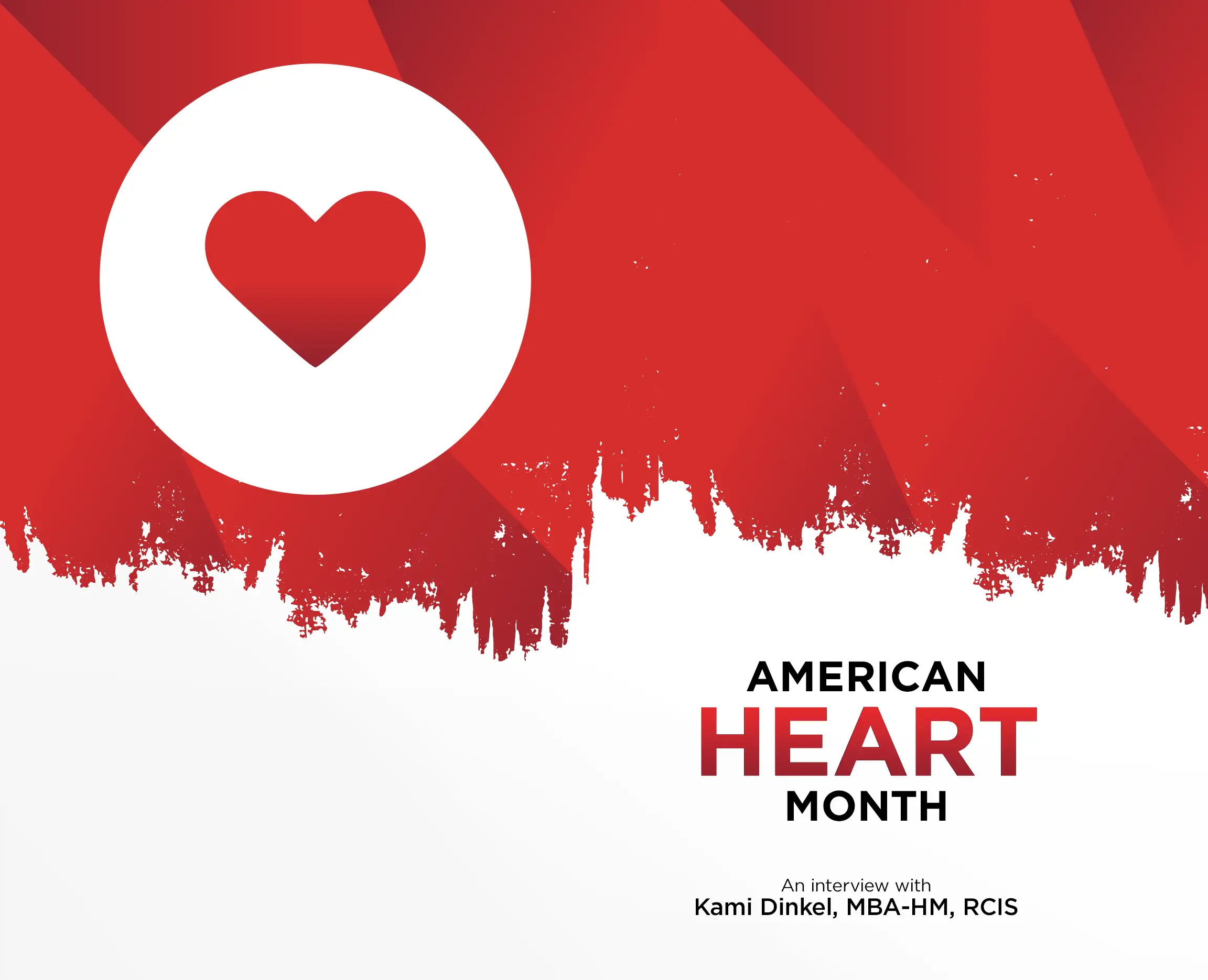This piece was last updated on 5/17/24 to reflect current information and statistics.
Kami Dinkel, MBA-HM, RCIS, Director of Operations for Cardiovascular Services for SCA Health discussed the importance of heart health education, the risks facing Americans, and preventative measures.
Answers provided by Kami Dinkel are represented by the initials KD.
Q: What does American Heart Month mean to you? Why should patients place an extra emphasis on protecting their heart health?
KD: My entire career has been in the cardiac field, so I’ve seen first-hand the importance of heart health education. As a result, heart health month has always been an important part of my life. To me this month is important because it spotlights heart health and education for the community. I firmly believe that health education is crucial for patients to be successful managing chronic conditions such as cardiac disease.
Cardiac disease is a chronic illness, meaning that once you have it, it never goes away. Managing your lifestyle as well as being compliant with medications becomes critically important in slowing the progression of the disease. For example, someone who gets a hip replacement, they get a new hip, and they are fixed. However, when someone gets a coronary artery stent, we fixed a problem, but they will continue to get more blockages unless they manage their lifestyle and take their medications.
During the month of February, the American Heart Association and many healthcare systems flood the community with heart health facts and knowledge, such as genetics, other risk factors, what to watch for, and signs to go to a physician. For those already facing heart disease, there are lifestyle tips and other information to help them stay healthy.
I believe its critical that patients not just be told what to do, but be educated on why each piece is important, and the consequences of non-compliance. It allows them to take charge of their health.
Q: What are some common risk factors for heart disease?
KD: Genetics is one major contributor. If a patient’s parents have, or previously had, heart disease the patient could be at higher risk. In this situation, you need to research your family history and discuss it with your doctor. I like to say that knowledge is power when it comes to your health. Being informed on your family history can really make a difference, especially when speaking with your doctor.
For example, it’s important to know if one parent has had heart disease a patient is at a 50% risk of disease themselves. If both parents had the disease, it’s more a matter of when, not if. Parents who suffered from heart disease before age 50 also increases your risk.
Managing your lifestyle, such as your blood pressure and cholesterol, and not smoking are great steps toward reducing your risk, no matter your gender.
Q: Some resources show that women are more commonly affected by heart disease? Is this true? How can women reduce their risk?
KD: It’s not necessarily that women are more commonly affected by heart disease, it’s more so that symptoms typically manifest differently in women in comparison to men. Everyone knows the common symptoms, like jaw pain, chest pain, etc., however, women don’t always suffer from the typical symptoms, which can cause responders to overlook heart issues in the event of an emergency.
Women tend to get vague symptoms, such as pain in non-cardiac related places or report just not feeling right. To raise awareness of these differences the American Heart Association started its “Go Red for Women” campaign. They don’t just target this campaign at a general audience, it’s also for the medical community to help educate them on the vague symptomology of women. It’s been a big success, and women have become more informed and feel more empowered to push their physicians to look further into cardiac issues if they feel they are not being heard.
Q: Along with typical symptoms, what are other common signs of heart disease?
KD: Along with jaw pain and chest pain, patients may sometimes experience pain along the back and shoulders. You may also have cold sweats or get nauseous in additional to pain symptoms.
Others report feeling that their heart is racing, dizziness, or feeling like they will pass out, which is a common symptom of arrythmia. Women may feel fatigued, or just not feel right for several days in a row. Women also report feeling arm and jaw pain more than chest pains. Extreme leg swelling can also be a sign of heart failure.
What’s most important is that you know your body. If something doesn’t feel right go visit your doctor. If you feel like you aren’t being heard, or your doctor isn’t looking into your symptoms, be persistent and continue to express your concerns and ask for answers!
Q: Along with managing blood pressure and cholesterol and not smoking, what other ways can patients reduce their risk?
KD: There are several ways to reduce your risk for heart disease. I recommend starting with eating a balanced diet and getting your recommended 30 minutes of daily exercise. When I talk about exercise, I’m not saying you have to go out and run a marathon every day, just make sure you get some exercise within your tolerance level.
I also advise that patients be sure to get their physical every year. At these exams your doctor will pull basic lab work, and depending on your family history, may ask for a stress test or EKG. This will allow your MD to check your blood pressure and cholesterol to check for signs of heart disease, and you can work to manage your symptoms.
For patients that currently have heart disease, it’s vital that you visit your cardiologist every year. Your cardiologist can prescribe you proper medications and help adjust dosages and take proper steps to manage your disease more proactively.
Resources
National Heart, Lung and Blood Institute: https://www.nhlbi.nih.gov/health/coronary-heart-disease/women






